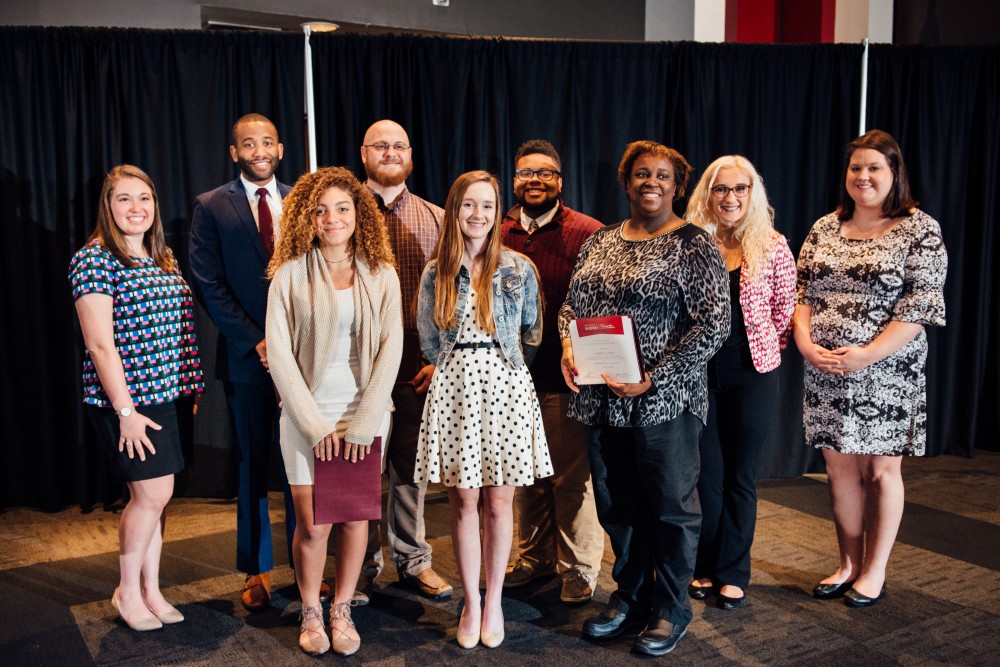Georgia State Scholar Presents Research on Access to Healthy Food
- October 31st, 2019
- in SCOPE, Student Community Engagement Center
University of Alabama students, faculty, staff and community partners attended a morning networking session and an afternoon workshop about working with vulnerable communities on Friday, Oct. 18, presented by Dr. Kellie Mayfield, assistant professor in nutrition at Georgia State University. The sessions were sponsored by the student organization SCOPE (Scholars for Community Outreach Partnership and Engagement), a program within the Center for Community-Based Partnerships.
Mayfield specializes in community-based mixed methods research, focusing on availability of healthy foods. Mayfield, whose Ph.D. is from Michigan State University, collected data on the differences in food availability and its effects on consumers. She partnered with a Flint, Mich. nonprofit that supports residents in growing and accessing healthy food.
Mayfield worked directly with a community group that addresses problems in the Flint food system by increasing information about consumption of healthy food. Her research examined quality and price of available items in local grocery stores.
Of 288 stores in Flint that sell food, 273 were included in Mayfield’s analysis of food access and control in smaller and larger stores. Areas within a three-mile radius were analyzed to present information on how many grocery stores were located in areas without public transportation.
In addition to scarce food resources, Flint residents also struggled with finding clean water. The Flint water crisis of 2014 caused Michigan to declare a state of emergency. Lead and other dangerous metals contaminated the water supply, and tap water in many homes was toxic.
In her study, Mayfield found that residents had little access to healthy food or clean water, leading her to propose a change framework based on women as nutritional gatekeepers in the food environment.
Mayfield’s experience working with African-American communities led to her investigations of “womanism” — as opposed to “feminism,” a term that suggests “white” women. In researching custodial African-American grandmothers, Mayfield found that women play an important role in providing for their families. As custodial grandparents increase and access to healthy food declines, she said, there is much less to share.
Audience members were given time to network with peers to discuss insights into Mayfield’s findings. Students thought of different ways they could apply her strategies to their own research. Mayfield reiterated the importance of critical thinking and reflection, especially when working with vulnerable communities.
One of the faculty members who felt especially motivated by the Mayfield presentation was Dr. Chapman Greer, who teaches business communications in the Culverhouse College of Commerce. “Dr. Mayfield’s presentation was very informative,” she said. “I learned a lot about how we can apply mixed methods to our research.” Greer and her students are researching the possibility of establishing a community hospital in Marion, Ala.
